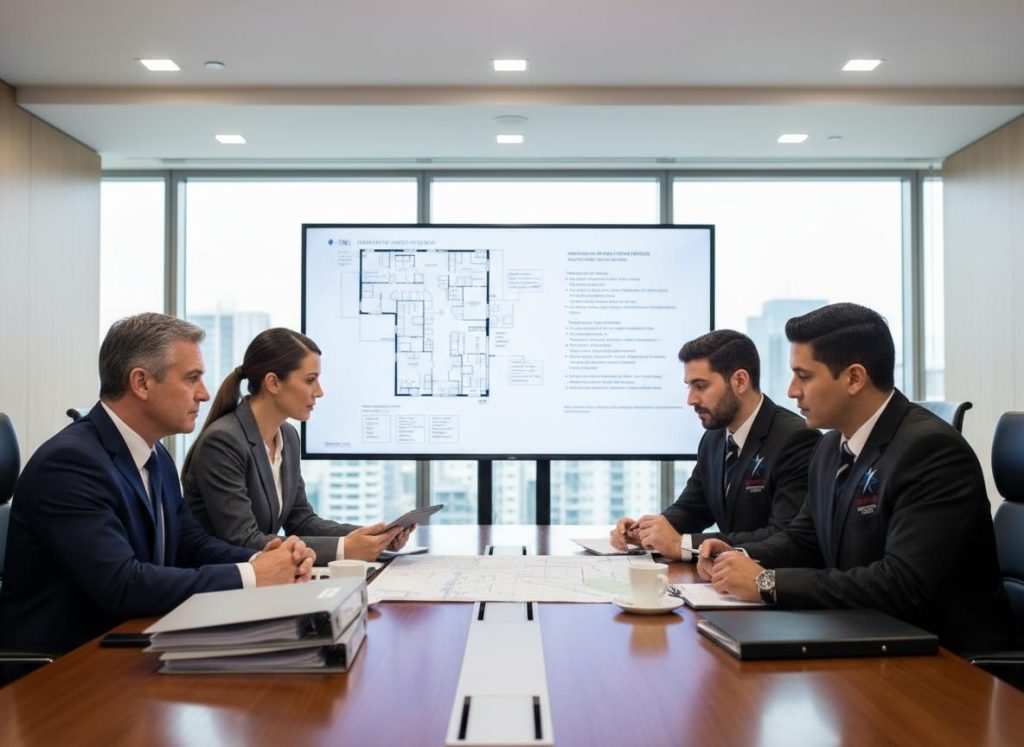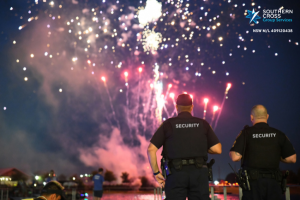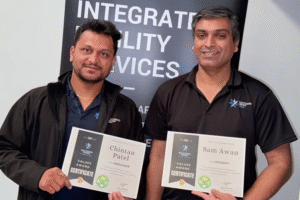In 2025, event security is more complex, data-driven, and interconnected than ever before. Whether it’s a local festival or a high-profile corporate conference, security planning is the backbone of safety and success.
Introduction
Modern threats extend far beyond physical incidents—organisers must now consider digital breaches, crowd psychology, sustainability, and reputation management.
This guide from Southern Cross Group Services (SCGS) will walk you through everything you need to know about event security planning in 2025 and beyond—from risk assessments and personnel deployment to technology integration and compliance with Australian regulations.
Why Event Security Matters More Than Ever
Events unite people but also expose vulnerabilities.
Australia’s growing calendar of sporting events, concerts, and festivals means organisers face higher scrutiny to protect guests, staff, and assets.
Common event security risks include:
- Crowd surges and overcapacity issues
- Unscreened access points or weak perimeters
- Anti-social or aggressive behaviour
- Theft or vandalism
- Terrorism or targeted disruption
- Cybersecurity weaknesses in ticketing and data systems
A strong, well-documented security plan mitigates these risks—protecting not just the event, but also the organiser’s brand, compliance status, and public trust.
The Evolution of Event Security in 2025
Event security is no longer static; it’s adaptive, predictive, and data-informed.
The best providers now use smart technology and analytics to anticipate and prevent incidents.
Key 2025 Trends
- AI Surveillance: Smart cameras flag unusual crowd behaviour in real time.
- Drones & Mobile Sensors: Enhance visibility over large venues.
- Body-Worn Cameras: Provide accountability and evidence.
- Integrated Command Centres: Link ground teams, police, and medics.
- Cybersecurity Integration: Protect ticketing, Wi-Fi, and payment systems.
- Sustainable Practices: Eco-conscious power and transport systems.
Security is now part of the overall guest experience, not just a background function.
Step-by-Step: How to Plan Effective Event Security
A successful event starts with a strong foundation—your security plan.
Here’s the SCGS-proven framework:
Step 1: Conduct a Detailed Risk Assessment
Map out potential threats for your specific event:
- Venue layout and access points
- Number and type of attendees
- Alcohol service areas
- Weather, time, and local environment
- VIP guests and high-value assets
Rank each risk by likelihood and potential impact, then develop mitigation strategies.
Southern Cross Group Services (SCGS) uses dynamic risk-mapping tools to allocate staff and surveillance efficiently.
Step 2: Build a Layered Security Strategy
Adopt a multi-layered defence system.
| Layer | Key Focus | Sample Measures |
| Outer | Perimeter protection | Fencing, lighting, barriers |
| Middle | Entry screening | Ticket verification, bag checks |
| Inner | High-value protection | VIP and backstage access |
| Digital | Cyber safety | Secure networks, encrypted comms |
This layered approach ensures backup systems in case one measure fails.
Step 3: Deploy the Right Personnel Mix
Your people are your strongest defence.
Essential roles:
- Uniformed guards for deterrence
- Plain-clothed operatives for discreet observation
- Traffic controllers for vehicle and crowd flow
- Event marshals for guest guidance
- Supervisors for coordination and incident response
SCGS’s trained and licensed officers deliver professionalism, compliance, and communication excellence at every event.
Step 4: Integrate Smart Technology
In 2025, security technology isn’t optional—it’s expected.
Core Tools
- AI-based CCTV analytics
- Real-time tracking via GPS and radios
- Drone and aerial surveillance
- Incident-management software for quick escalation
- Body cams for evidence capture
SCGS integrates all of these into one centralised command network, ensuring no data is lost and no incident goes unnoticed.
Step 5: Strengthen Communication & Coordination
Communication saves lives in a crisis.
Establish a Central Command Post (CCP) linking:
- Event control
- Security officers
- Medical responders
- Police and emergency services
Use clear radio protocols, designated escalation points, and backup systems in case of network failure.
Step 6: Prepare Emergency & Evacuation Plans
Your plan must clearly outline:
- Fire, bomb threat, and active threat protocols
- Medical response and first aid locations
- Lost child or vulnerable person procedure
- Crowd evacuation routes
- Adverse weather actions
SCGS runs realistic emergency drills before major events—because practice turns panic into precision.
Step 7: Conduct Post-Event Analysis
After every event:
- Review all incident and near-miss reports
- Evaluate response times and communication gaps
- Gather staff and client feedback
- Update your risk management plan
This continuous improvement loop demonstrates diligence and strengthens compliance documentation.
Understanding Crowd Psychology
Crowd management is science as much as security.
SCGS trains its personnel in behavioural analysis to detect signs of tension, panic, or aggression before escalation occurs.
Subtle changes in tone, direction, or body language can signal potential unrest.
By identifying early, security teams can de-escalate without confrontation—keeping the environment calm and controlled.
Compliance and Legal Obligations in Australia
Every Australian state enforces strict security licensing and WHS requirements for event security providers.
Organisers must ensure:
- The company holds a valid Master Licence (e.g., NSW Fair Trading)
- Individual officers have appropriate security licences
- Emergency and safety planning aligns with WHS Regulations
- Data and surveillance comply with Privacy Act 1988
Partnering with Southern Cross Group Services ensures full legal compliance and trusted professionalism.
Sustainable and Ethical Event Security
The next generation of events is eco-conscious and community-driven.
SCGS supports this shift by:
- Using hybrid and electric patrol vehicles
- Reducing paper waste through digital reporting
- Sourcing local staff to support regional economies
- Conducting ethical workforce training
Security doesn’t have to conflict with sustainability—it can lead the way.
The Future of Event Security Beyond 2025
The future is predictive, AI-driven, and integrated.
Imagine:
- AI algorithms predicting crowd pressure points before congestion
- Facial recognition replacing manual check-ins
- Wearable wristbands alerting parents to lost children instantly
SCGS is already implementing AI-based analytics and automated monitoring systems, ensuring event organisers stay ahead of tomorrow’s challenges.
Why Choose Southern Cross Group Services (SCGS)
For nearly two decades, SCGS has protected Australia’s most high-profile events and venues.
What sets us apart:
- Fully licensed and accredited security workforce
- National presence with 24/7 operational support
- Proven expertise across entertainment, sports, and government events
- Integration of human and electronic security systems
- Tailored, scalable solutions for any event size
When it comes to your guests’ safety, don’t settle for average—choose the partner that plans for every possibility.
Final Thoughts
Event security in 2025 and beyond demands intelligence, empathy, and adaptability.
With the right planning, technology, and trained personnel, your event can achieve both safety and success.
At Southern Cross Group Services, we don’t just protect events—we empower organisers with confidence, compliance, and control.







Comments